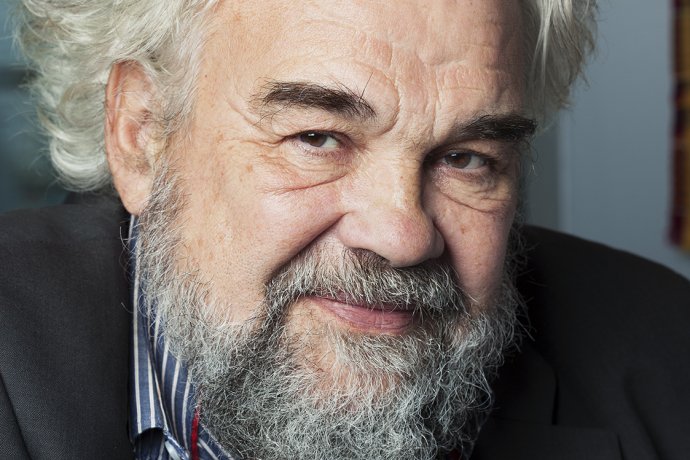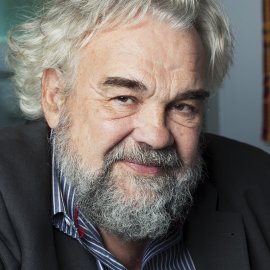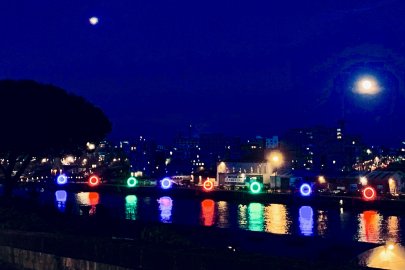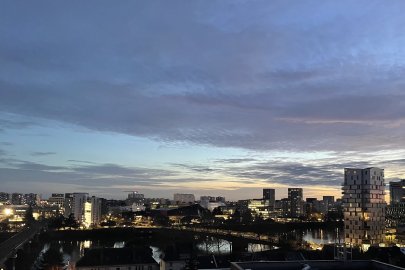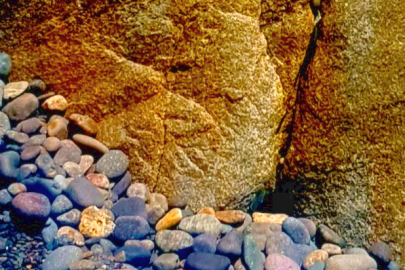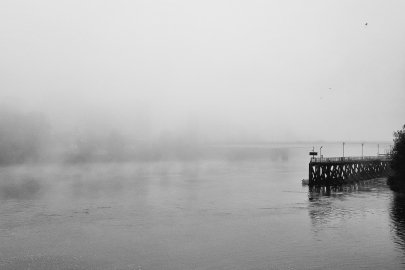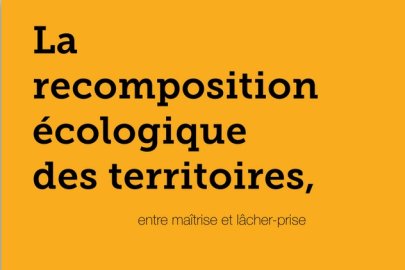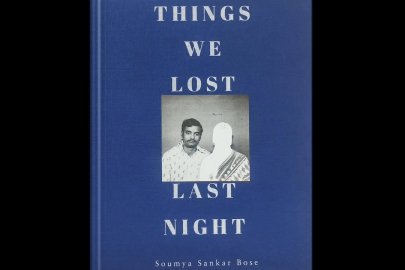IEA, Nantes 30 April 2039
Marc CHOPPLET
In every form of foresight, there is a promise and a gamble.

It's raining in Nantes on 30 April 2039, and the waters of the Erdre are mingling with those of the Loire in a continuous movement of tiny variations of moss fraying in the current. The river is a little low. This is the visible effect of global warming, which has been going on for several decades now and which we seem incapable of containing. For a long time now, it has been calling for a change in our individual and collective relationship with the world. Almost in vain. The distant roar of the lock and the flow of these waters, where you can't swim, create a strange contrast and a strange osmosis with this crossroads where we stop, live, question and listen, motionless, to the questioning of the whole world and its upheavals.
Open, fluid and quivering, certain ecumene are charged with space, time and hope. Centuries, civilisations, knowledge, beliefs and representations stop here for a moment, mingle and leave again. Straightening out the deterministic geometry of the world, they explore other realities - historical, imaginary or present - other exchanges and other words to understand the present and invent tomorrow's action. Art, creativity and reflection have their rightful place here, as permanent transcriptions and translations in opposition to weapons and violence.
In this city, which was once enriched by the irons of slavery, the Institut d'Études Avancées de Nantes bears loud and clear the conviction that the only way forward is to share research, views and knowledge. For thirty years, this place has been living and vibrating to the rhythm of the river, the meeting of waters, the proximity of the sea, listening to other spaces and other concerns, the circulation of ideas, curiosity and the expression of differences.
Four centuries ago, on 30 April 1639, René Descartes wrote to his friend Father Marin Mersenne that he had just received a book on ‘curious perspective’ by the young mathematician, geometer and optics enthusiast Jean-François Niceron. Niceron praised ‘Monfieur des Cartes’ and his dioptric, besides Galileo and Kepler's names. What was at stake was a new way of looking at science and nature, opening up new perspectives.
With other ambitions, notably to think about a different relationship with the world, with others and with the biosphere, it is the very purpose of the Institute to open up new perspectives in the human and social sciences, in law, in culture and in ethics. These were its original ambitions, and they remain so. The shifts in human dynamics that it has long been anticipating do not change this. If they were to disrupt its future, its pioneering role would in no way be altered.
You never bathe in the same river twice. May this humanist Thelem live on.
